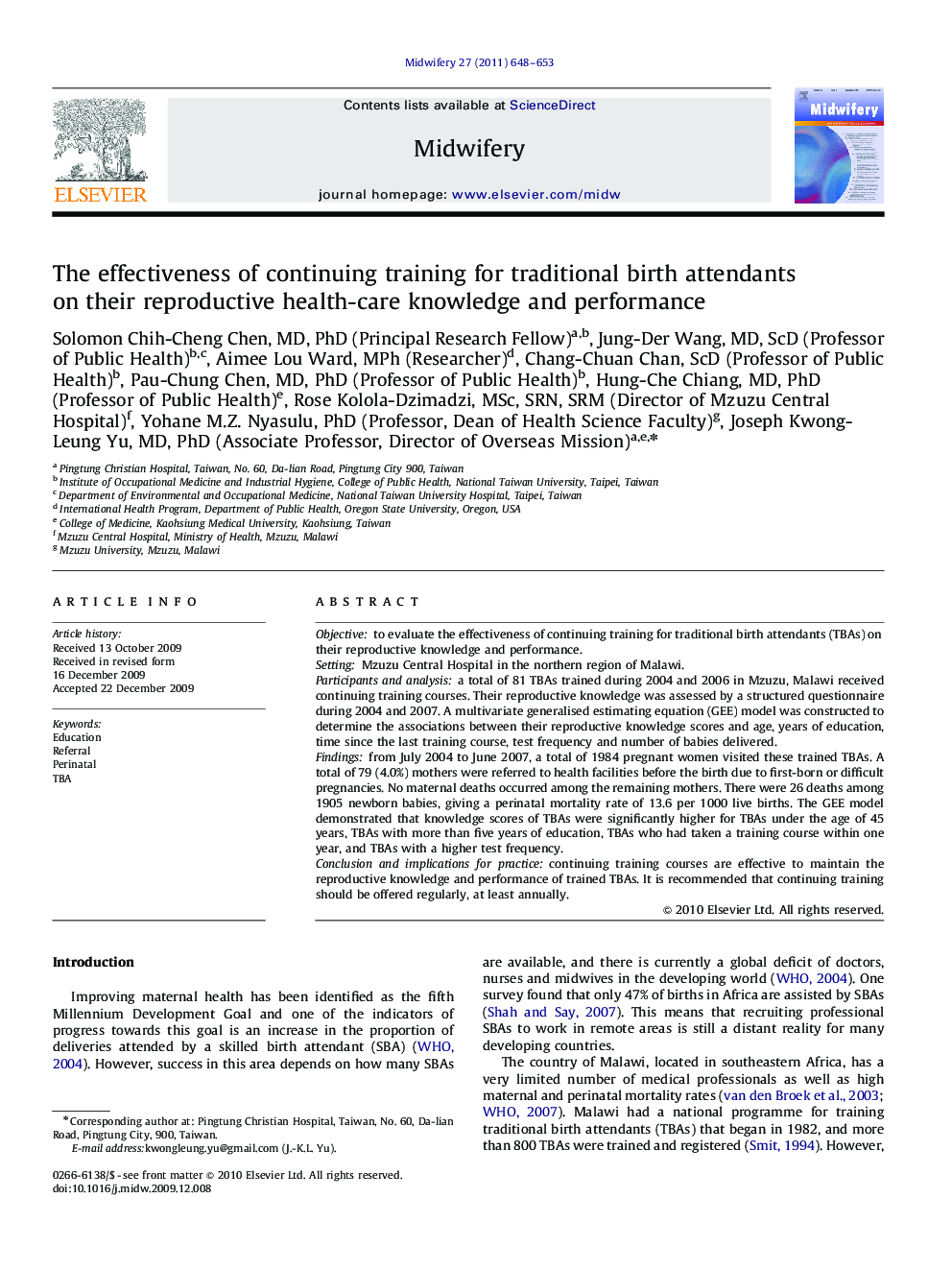| Article ID | Journal | Published Year | Pages | File Type |
|---|---|---|---|---|
| 1084677 | Midwifery | 2011 | 6 Pages |
Objectiveto evaluate the effectiveness of continuing training for traditional birth attendants (TBAs) on their reproductive knowledge and performance.SettingMzuzu Central Hospital in the northern region of Malawi.Participants and analysisa total of 81 TBAs trained during 2004 and 2006 in Mzuzu, Malawi received continuing training courses. Their reproductive knowledge was assessed by a structured questionnaire during 2004 and 2007. A multivariate generalised estimating equation (GEE) model was constructed to determine the associations between their reproductive knowledge scores and age, years of education, time since the last training course, test frequency and number of babies delivered.Findingsfrom July 2004 to June 2007, a total of 1984 pregnant women visited these trained TBAs. A total of 79 (4.0%) mothers were referred to health facilities before the birth due to first-born or difficult pregnancies. No maternal deaths occurred among the remaining mothers. There were 26 deaths among 1905 newborn babies, giving a perinatal mortality rate of 13.6 per 1000 live births. The GEE model demonstrated that knowledge scores of TBAs were significantly higher for TBAs under the age of 45 years, TBAs with more than five years of education, TBAs who had taken a training course within one year, and TBAs with a higher test frequency.Conclusion and implications for practicecontinuing training courses are effective to maintain the reproductive knowledge and performance of trained TBAs. It is recommended that continuing training should be offered regularly, at least annually.
